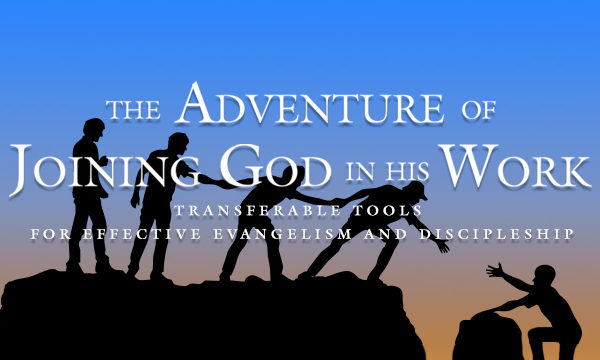Back to series



Character
(This is one part of a two-part series on Character. Part 1, Part 2)
Click here to open a Print - Friendly PDF
Character in Crisis
The oft-discussed crisis of character in this nation is due to the widespread disdain for moral absolutes. If there is nothing fixed, then character is based on quicksand. The attitude of many (more than two-thirds of people in the USA) is that morality is based on the situation or that it is solely a matter of personal preference. Despite this relativistic tendency, there is a desperate desire to inculcate character in the educational process. But you cannot have it both ways. Either you give up your relativism or you give up a solid foundation for character. As the Hebrews passage calls us to do, we need to “consider how” to shape or create character in our time.
The word for “let us consider” (katanoeo) is used fourteen times in the New Testament. It means “notice, consider, pay attention to, look closely at.” George Guthrie says: “Believers are to rivet their attention on the need for conscious activities of encouragement among those in the Christian community.”
Consider how to stimulate. We are to consider one another, considering how to stimulate each other to love (and good deeds). Such consideration has not often been done. Sometimes it is assumed that merely teaching what is right and what is wrong is enough. It is easy to neglect the cultural context in which people live, the social, economic, and community pressures that contradict or undermine faithfulness. We can also underestimate the difficulty of reversing deeply entrenched patterns (bad habits) that bind us. We can also neglect desire. We can teach people duty, but it is much more difficult to teach the desire to do your duty. You can want to do what’s right (desire), but not know what right is (duty). But many know what is right (duty) yet lack sufficient desire to consistently do it. So we must seriously “consider how to stimulate one another” to really love and consistently manifest good deeds.
The Importance of Character
Love is never safe apart from character. How can we risk loving friends, spouses, co-workers, neighbors, and fellow citizens? Sometimes we are called to love without regard for our own safety (as in loving our enemies). Yet it is wise before entering into a long-term relationship to consider the other person’s character. This is especially true in friendship, marriage, business partnership, etc. Love in a relationship is only safe when there is character present. A habitually abusive spouse may do an occasional good deed, but it is not safe to be in a relationship with him or her. In like manner, a church is not safe apart from the character of its members. A business partnership is only as safe as the character of the partners. A nation is only as safe as the character of its citizens. You can only trust wisely when you discern good character being present.
Relationships can only rise as high as the characters of those involved. Plato argued that you cannot be good friends with a bad person because sooner or later that bad character will manifest itself. That relationship will only rise as high as the lowest level of character between the two. Similarly, Aristotle argued that there are three kinds of friendship: (1) utility, (2) pleasure, (3) virtue. Only the friendship of virtue can be trusted to rise to the heights because only it is based on unchanging values.
Friendships of utility, based upon a common situation, such as working at a summer camp, playing on a sports team, or working at the same job, can be of great value but it would be unrealistic to expect that all these relationships would continue beyond the common context in which they grew. If the relationship was primarily about playing basketball together, it may be that if you were to meet later, the only thing you would have in common was basketball. If you were together in a summer camp situation, it could be that accomplishing the task of running that camp was what the friendship was about and that outside that context, there would be little else in common to bind the relationship. If the relationship is primarily about utility—accomplishing a task—then the relationship may not continue outside the context of that task.
The second one of Aristotle’s friendships was a friendship of pleasure—based upon common good times you had together. Fun times in high school, college, and beyond often draw people together and create good memories. However, if the friendship was not based on something more than pleasure, if you were to meet years later, you might only be able to talk about the good old times you had together. Now it is good to have friendships of utility and pleasure as long as you do not expect more of those relationships than they can deliver. In Proverbs 17:17 it says, “A friend loves at all times and a brother is born for adversity.” A true friend is with you and for you despite changing situations and circumstances. When good times, times of pleasure, change to times of adversity, the true friend continues to love, so much so that it seems that they were born just to help in that time of adversity. But that is not true of all friendships.
 It is only the third type of friendship—one of virtue—that can survive changing contexts and calamities. Because the friendship of virtue is based on that which is eternal and unchanging—the true, the good, and the beautiful—it lasts no matter what. As a believer in Christ, if you meet such a person years later, and you have both been pursuing the unchanging Christ, you pick up right where you left off. Not long ago, I spent a few days at a Young Life camp with a friend I had not seen much in almost thirty years since our days in a Young Life leadership house. Yet, because we both had continued to follow Christ, study His Word, and pursue ministry, there was still a bond present and our conversation flowed easily and naturally to eternal things, permanent things, what we can call first things. Relationships based on first things will withstand the storms of life. Only those relationships that are based on that which is unchanging have a solid basis to withstand the constant changes life brings.
It is only the third type of friendship—one of virtue—that can survive changing contexts and calamities. Because the friendship of virtue is based on that which is eternal and unchanging—the true, the good, and the beautiful—it lasts no matter what. As a believer in Christ, if you meet such a person years later, and you have both been pursuing the unchanging Christ, you pick up right where you left off. Not long ago, I spent a few days at a Young Life camp with a friend I had not seen much in almost thirty years since our days in a Young Life leadership house. Yet, because we both had continued to follow Christ, study His Word, and pursue ministry, there was still a bond present and our conversation flowed easily and naturally to eternal things, permanent things, what we can call first things. Relationships based on first things will withstand the storms of life. Only those relationships that are based on that which is unchanging have a solid basis to withstand the constant changes life brings.
How Can You Discern Character?
You can only trust someone to their degree of character. How can you discern what level of character a person has? Look at the person they have treated or are treating most poorly. That shows the degree to which their character can descend. It is not wise to trust that person beyond that level of their character because what they do to another, given enough time and opportunity, they will likely do to you. Proverbs warns us to distinguish between people who pretend to be friends (but are not) and the real thing. Proverbs 18:24 says, “There are friends that pretend to be friends, but there is a friend that sticks closer than a brother.”
It is one thing to forgive someone, but another to trust them. Because of my background in dealing with cults, I was called to go to another city where a leader had abused a small group of followers. He had abused money, sex, and power for a number of years and was finally found out. When the whole sordid story came out, the little flock was in dismay. How could this trusted leader have been for years so abusive in manipulating people, have many adulterous affairs, and much financial misdealing? He had pleaded with them to forgive him and trust him again. As we talked, we together came to the conclusion: Forgiveness? Yes. Trust? No! Christ calls us to forgive when anyone asks. But he does not call us to trust everyone equally.
It would only be wise to trust that leader again when he had demonstrated over time that he had changed his ways. Often believers assume that just because someone calls themselves a Christian that they should be trusted more than another. It is not necessarily the case. Would that it were always so! Believers are forgiven for their sin but come to Christ with various character deficiencies. These faults do not always automatically disappear. What Christ brings by the Holy Spirit is renewed desires (being born again) and the guidelines for our actions revealed in the Scriptures.
But that does not mean that “love and good deeds” automatically abound. Often it takes a battle requiring the whole armor of God to overcome bitterness, lust, envy, pride, and other vices. Love and good deeds need to be stimulated, cultivated, created—applying the principles of Scripture by the Holy Spirit to real deficiencies in our lives. It is wise for leaders to be discerning about those to whom they entrust responsibility. Do they demonstrate the level of character appropriate to the responsibility to be given them?
Love and Character: Love Is the Best
The way to character is the way of love. In the Scriptures, love is the best or highest virtue because it sums up them all. In I Corinthians 13, it says that of the great virtues—faith, hope, and love—“the greatest of these is love” (v. 13). Jesus summarizes the whole law by maintaining that loving God and your neighbor are the foundation of the Law and the Prophets (Matt. 22:40). Jesus’ new commandment is that we love one another as Christ has loved us (John 13:34). The Apostle Paul, following Jesus, indicates that “love is the fulfillment of the Law” (Rom. 13:10). The commandments against adultery, murder, stealing, and covetousness as well as other commandments are summed up by saying, “Love your neighbor as yourself” (Rom. 13:9). The Biblical centrality of love is well known and uncontroversial,
even taken for granted.
But this is strikingly not the case in the culture. There have been numerous attempts to teach character in the culture without mentioning God, Jesus, or the Bible. Moreover, the lists of virtues being taught almost always exclude an explicit mention of love. For instance, the Character Counts! Coalition lists “six pillars of character”—respect, responsibility, trustworthiness, fairness, caring, and citizenship. The Community of Caring affirms “five core values—caring, respect, trust, responsibility, and family.” The Character Education Institute focuses on “universal values” such as courage, honesty, truthfulness, justice, tolerance, honor, generosity, kindness, helpfulness, freedom of choice, equal opportunity, and economic security. The Heartwood Institute based in Pittsburgh stands out as an exception including “love” as one of the “seven universal attributes along with courage, loyalty, justice, respect, hope, and honesty.”
The problem is that once you strip these values of their theological foundation, there is no solid answer as to why you ought to be the kind of person prescribed. James Davison Hunter in his insightful book, The Death of Character, points out that the “demise of character begins with the destruction of creeds, the convictions, and the ‘god terms’ that made those creeds sacred to us and inviolable within us.” Once values are stripped of their “commanding character,” then the word “value” is reduced to utility, personal preference, or community consensus. Hunter argues that contemporary moral education, as well intended as it may be, actually “undermines the capacity to form the convictions upon which character must be based if it is to exist at all.” We are desperately seeking a renewal of character but are not willing in the culture to give it sufficient foundations or justification. Hunter says:
We say we want a renewal of character in our day but don’t really know what we ask for. To have a renewal of character is to have a renewal of a creedal order that constrains, limits, binds, obligates, and compels. This price is too high for us to pay. We want character but without unyielding conviction; we want strong morality but without the emotional burden of guilt or shame; we want virtue but without particular moral justifications that invariably offend; we want good without having to name evil; we want decency without the authority to insist upon it; we want more community without any limitations to personal freedom. In short we want what we cannot possibly have on the terms that we want it.
Leaving out love not only deprives character traits of coherence (love as the sum) but it deprives character of motive—rooted in the love of God as demonstrated in Christ and commanded by Him.
The Broader the Better
Christ calls us to a love that extends into increasingly wider circles—family, friends, brothers and sisters in Christ, neighbors—eventually even to enemies. No other religious perspective emphasizes “love” to the same degree or extent. More than mere passive “tolerance,” Christ calls us to love very diverse people—of every tribe, tongue, people, and nation (Rev. 5:9). Only a great Lord could give us the capacity to love people so different from us.

Arthur W. Lindsley
Senior Fellow for Apologetics, CSLI Arthur W. Lindsley is the Vice President of Theological Initiatives at the Institute for Faith, Works, & Economics. He has served at the C.S. Lewis Institute since 1987 both as President until 1998 and currently as Senior Fellows for Apologetics. Formerly, he was director of Educational Ministries at the Ligonier Valley Study Center, and Staff Specialist with the Coalition for Christian Outreach. He is the author of C.S. Lewis's Case for Christ, True Truth, Love: The Ultimate Apologetic, and co-author with R.C. Sproul and John Gerstner of Classical Apologetics, and has written numerous articles on theology, apologetics, C.S. Lewis, and the lives and works of many other authors and teachers. Art earned his M.Div. from Pittsburgh Theological Seminary and a Ph.D. in Religious Studies from the University of Pittsburgh. COPYRIGHT: This publication is published by C.S. Lewis Institute; 8001 Braddock Road, Suite 301; Springfield, VA 22151. Portions of the publication may be reproduced for noncommercial, local church or ministry use without prior permission. Electronic copies of the PDF files may be duplicated and transmitted via e-mail for personal and church use. Articles may not be modified without prior written permission of the Institute. For questions, contact the Institute: 703.914.5602 or email us.
COPYRIGHT: This publication is published by C.S. Lewis Institute; 8001 Braddock Road, Suite 301; Springfield, VA 22151. Portions of the publication may be reproduced for noncommercial, local church or ministry use without prior permission. Electronic copies of the PDF files may be duplicated and transmitted via e-mail for personal and church use. Articles may not be modified without prior written permission of the Institute. For questions, contact the Institute: 703.914.5602 or email us.
-
Recent Podcasts
Fix Your Eyes Upon Jesus
by Steven Garber, Aimee Riegert on June 27, 2025Perhaps the most prominent and current figure who...Read More
-
An Honest Search for God – Dr. Jay Medenwaldt’s Story
by Jana Harmon, Jay Medenwaldt on June 20, 2025
-
Moving Beyond Forgiveness to an Abundant Life
by Robert Saucy, Aimee Riegert on June 13, 2025
-
Recent Publications
Are Miracles Possible
by Christopher L. Reese on June 1, 2025The 21st century has provoked many conversations and...Read More
-
Is God Just, Not Fair?
by Jennifer Rothschild on May 15, 2025
-
Seeking Dietrich Bonhoeffer
by Joseph A. Kohm on April 29, 2025
0
All Booked
0.00
All Booked
0.00
All Booked
24720
The Adventure of Joining God in His Work Live Online Small Group 7:00 PM CT
https://www.cslewisinstitute.org/?event=the-adventure-of-joining-god-in-his-work-live-online-small-group-700-pm-ct&event_date=2025-09-16®=1
https://www.paypal.com/cgi-bin/webscr
2025-09-16

Next coming event
Days
Hours
Minutes
Seconds
The Adventure of Joining God in His Work Live Online Small Group 7:00 PM CT
On September 16, 2025 at 7:00 pmCategories
Speakers

Arthur W. Lindsley
Senior Fellow for Apologetics, CSLI
Team Members





